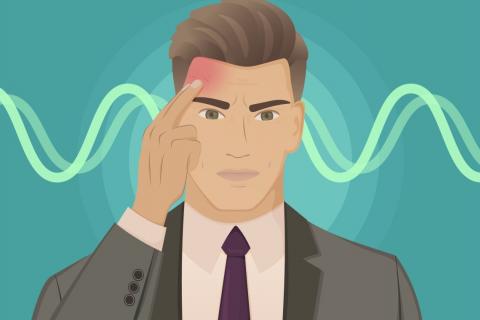
People with Down syndrome do not usually reach the levels of physical activity recommended by the World Health Organization (WHO), which indicates that, for example, adults aged 18 to 64 years, “should perform moderate aerobic physical activities for at least 150 to 300 minutes; or vigorous aerobic physical activities for at least 75 to 150 minutes; or an equivalent combination of moderate and vigorous activities throughout the week.”
However, the regular practice of moderate physical exercise can be especially beneficial for people with this genetic alteration, since a study has proven that it can promote both their physical health and their cognitive function. Specifically, their results reveal that it is enough for them to take short walks for eight weeks to show improvements in information processing and attention.
83 adults participated in the research – 40 women and 43 men aged 18 to 48 – from 10 countries and recruited as a result of an international campaign by the Canadian Down Syndrome Society and was led by Dr. Dan Gordon and Viviane Merzbach from Anglia Ruskin University (ARU) in Cambridge, UK. Their results have been published in the International Journal of Environmental Research and Public Health.
Walking helps develop cognitive and executive function
The participants were divided into four groups for eight weeks. Members of one of the groups performed cardiorespiratory exercises that consisted of walking for 30 minutes three times a week; another group participated in cognitive and executive function exercises provided by BrainHQ; another group performed physical and cognitive exercises; and the fourth group did neither of these two.
“Walking has the effect of activating the locomotor pathways, boosting cognitive development and improving information processing, vigilance and attention”
At the beginning and end of the eight-week study period, participants underwent physical and cognitive assessments, and were provided with a Fitbit device that allowed them to record the steps they took, the distance they traveled and at what speed, and their heart rate, which was communicated to researchers via a customized Mindsets app.
The beneficial effects of exercise on physical fitness were demonstrated by the significant increase in the total distance traveled in a six-minute walk test, with an improvement of 11.4% in the exercise-only group and 9.4% in the exercise-only group. 9% in the combined group. In the Sustained Attention to Response Test (SART), which measures error rates during a cognitive activity, the researchers found that there was significant improvement in the exercise-only group, the cognitive training group, and the combined group.
Researchers observed that activating locomotor neural pathways through the process of walking fosters cognitive development in people with Down syndrome because it requires them to be more attentive and pay more attention to what they are doing. “Walking, and exercise in general, is not a natural activity for many people with Down syndrome, but this study shows that walking is a powerful tool for developing cognitive and executive function,” said Dr. Dan Gordon, professor associate of Physiology at Anglia Ruskin University and main author of the study.
The expert adds that, although for most people walking is a subconscious activity, it involves a lot of information processing and decision making, and that in the case of participants with Down syndrome they believe that “walking has the effect of activating locomotor pathways, boost cognitive development and improve information processing, vigilance and attention.”
“These findings are potentially huge for the Down syndrome community, especially since walking is a free activity that most people can participate in. “Improved cognitive function can lead to greater social integration and quality of life, which is important given that this is the first generation of people with Down syndrome who will usually outlive their parents,” he concludes.















